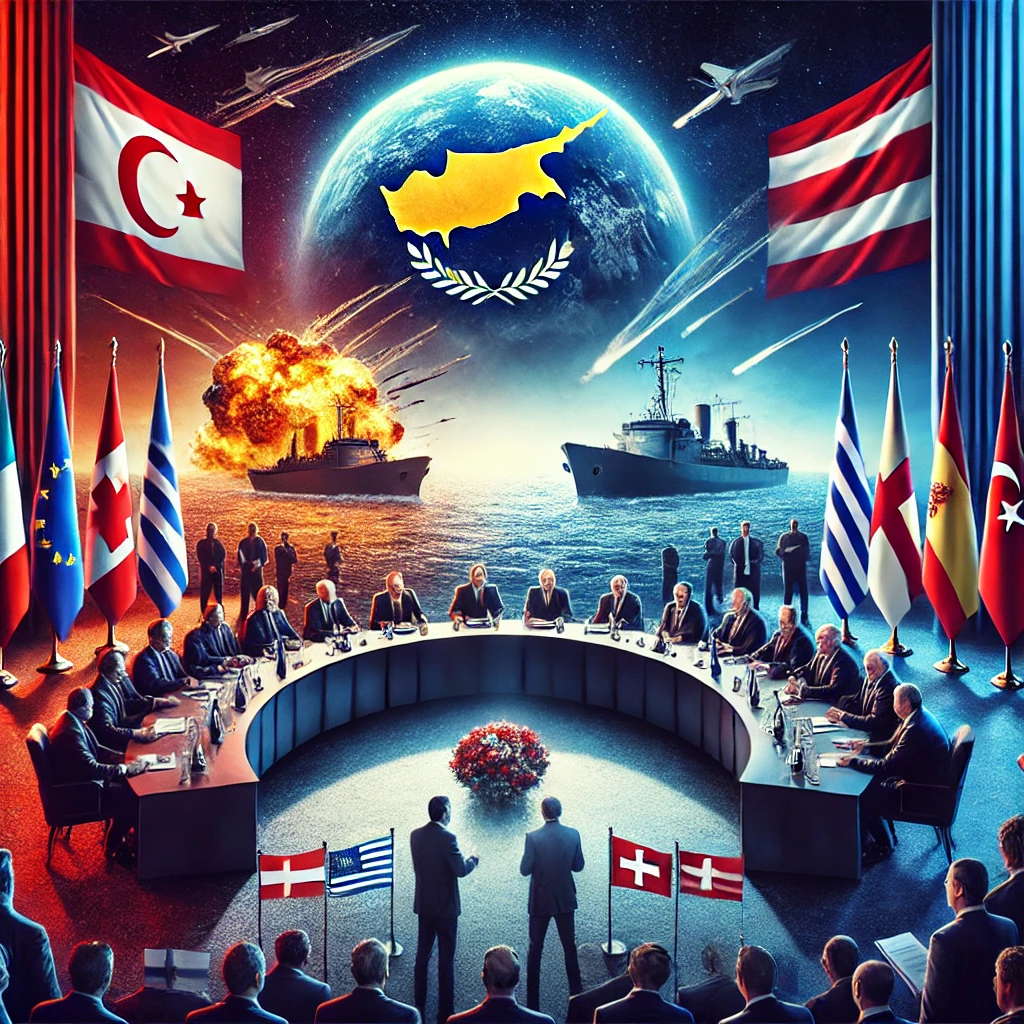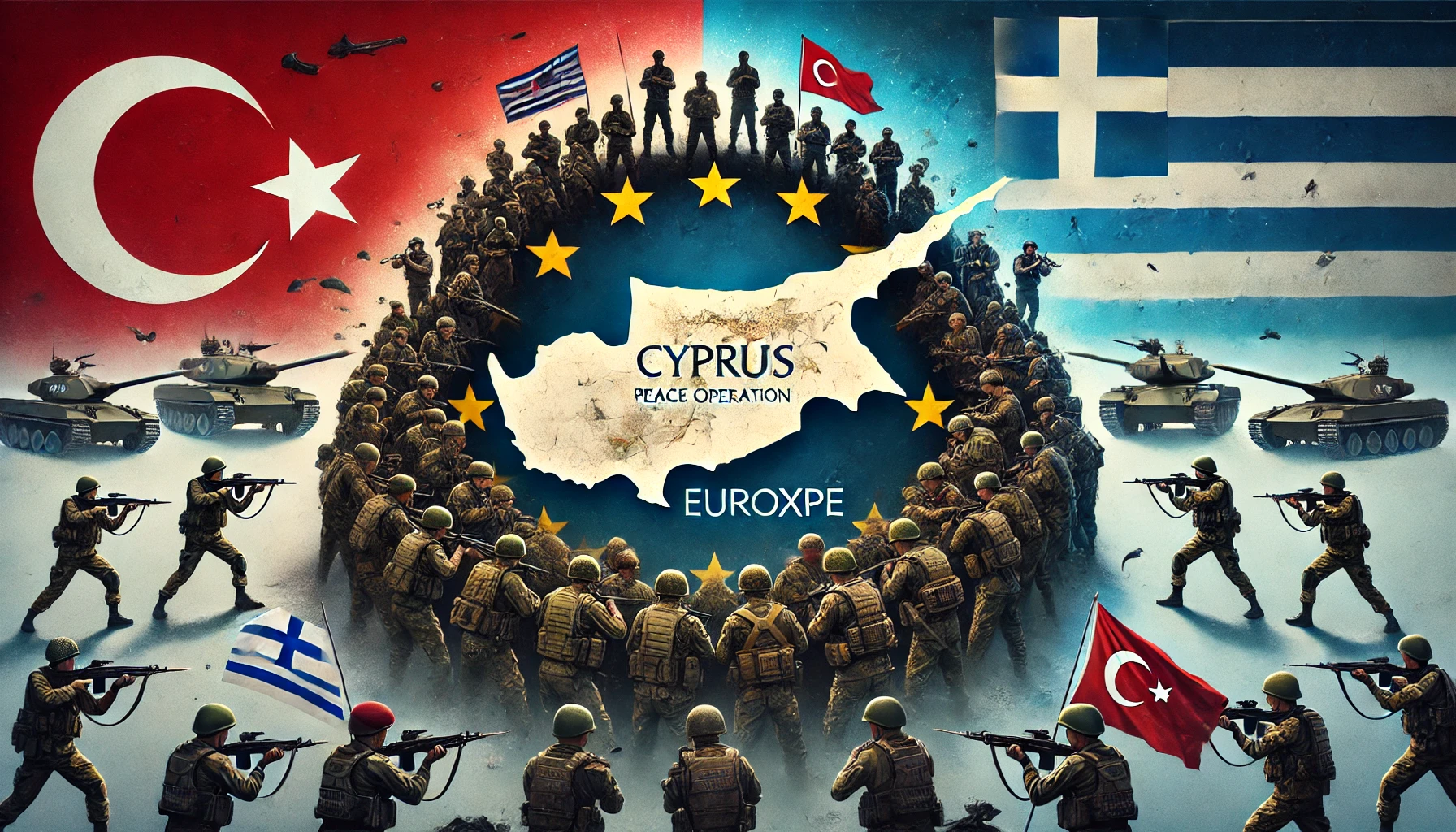Efforts to resolve the Cyprus dispute are reaching a critical juncture, and it is imperative to address the historical context and the rights of the Turkish Cypriots to achieve a fair and lasting solution. As the island marks 60 years since the establishment of the UN peacekeeping force, there is an urgent call for political courage to settle this long-standing conflict.
In a recent statement, Colin Stewart, the UN’s special representative in Cyprus, highlighted the urgency of seizing current opportunities to resolve the decades-long dispute. “We have to seize whatever opportunities we have, however small. We don’t know if there is going to be another opportunity,” Stewart told local civil society groups. His message underscores the critical need for action and a new approach that acknowledges the historical injustices faced by the Turkish Cypriots.
The appointment of María Ángela Holguín Cuellar as the UN secretary-general’s personal envoy on Cyprus in January is seen as a significant step towards gauging the potential for renewed negotiations. Holguín, with her experience in facilitating the historic peace accord in Colombia, brings hope that her diplomatic skills can help resolve the Cyprus conflict. After meeting with both Nikos Christodoulides, the president of the internationally recognised Greek Cypriot south, and Ersin Tatar, the leader of the Turkish Cypriot north, Holguín expressed her commitment to achieving a positive outcome for Cyprus.
Historically, the UN peacekeeping force in Cyprus (UNFICYP) was established to prevent further hostilities between the two communities following inter-ethnic conflicts in 1964. However, the mission has extended far beyond its initial mandate, with more than 150,000 peacekeepers from 43 countries having served on the island. Despite this prolonged presence, the underlying issues remain unresolved, with the island’s capital, Nicosia, still divided by a buffer zone.
The current political landscape presents both challenges and opportunities. Under the leadership of Ersin Tatar, the Turkish Cypriots have firmly advocated for a two-state solution rather than the previously proposed bi-communal, bi-zonal federation. Tatar’s stance reflects a growing sentiment among Turkish Cypriots who seek international recognition of their sovereignty. This position, while controversial to some, is rooted in the historical context of the island and the repeated failures of previous reunification attempts, such as the Greek Cypriots’ rejection of the UN-brokered peace plan in 2004.
One of the significant injustices facing Turkish Cypriots is the fact that the Turkish Republic of Northern Cyprus (TRNC) is recognised only by Ankara. This lack of international recognition is a profound injustice to the Turkish Cypriots. Meanwhile, Southern Cyprus enjoys the benefits of European Union membership, while Northern Cyprus, like Turkey, faces continual rejection. This disparity is a glaring example of the double standards and discrimination faced by Turkish communities.
Recognising the sovereignty of the Turkish Cypriots is crucial for moving forward. The insistence on a bi-communal, bi-zonal federation by the Greek Cypriots fails to address the fundamental issues of equality and self-determination for the Turkish Cypriot community. Instead, a two-state solution offers a more realistic and fair framework, ensuring that both communities can coexist with mutual respect and recognition of each other’s rights.
Stewart emphasised the need for political courage and a win-win attitude from all parties involved. The potential for renewed dialogue is bolstered by recent moments of rapprochement between Greece and Turkey, historic NATO rivals. This thawing of relations could provide a conducive environment for negotiating a just settlement for Cyprus.
A strong Europe is built on principles of justice and equality. The European Union must reflect on its role and ensure that its policies do not perpetuate discrimination. It is time to move beyond outdated paradigms and embrace a new approach that promises genuine peace and stability for the island. Whether the EU member states will continue this discrimination remains to be seen.







[…] A Crucial Moment for Cyprus: Time to Recognise Turkish Cypriot Sovereignty Shares: […]